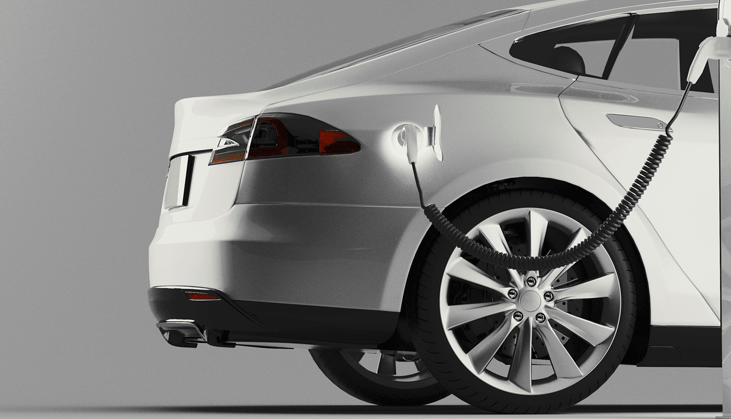The UK is looking to achieve a target of emitting zero carbon by 2050. It plans to do that by moving away from traditional petrol and diesel cars and over to electric.
But how much exactly does it cost to run an electric vehicle?
With diesel and petrol prices forever going up, will it be cheaper to recharge an electric car? What about insurance or maintenance?
The upfront cost
Electric cars may have dropped in price a little over the years but are still out of many people’s budgets when buying one.
However, electric vehicle (EV) technology is becoming cheaper as it moves into the mainstream market. Nowadays, you can get a pretty decent model for around £25,000. The popular Nissan Leaf and Vauxhall e-Corsa are both in the £26,000 bracket, while one of the cheapest is the Skoda CITIGOe at about £17,500.

There’s also the Government plug-in grant to consider. Cars with less than 50g/km and that can travel at least 70 miles with no emissions will qualify for the grant, which will pay for 35% of the purchase price up to £2,500.
So it is possible to find an electric car that doesn’t have quite such an eye-watering price tag, but if you haven’t got the savings to hand, there’s always a finance option. Either Hire Purchase or PCP finance could help spread the cost of the car out over several years.
Many find that leasing is the most cost-effective way to get hold of an electric car. Firstly, the monthly payments are typically much lower than you would get on a car finance deal (some come in at under £100), and secondly, it allows you to change your car every few years. With the rate that electric car technology is changing, it can be a sensible idea.
Charging an electric car
After the car’s initial cost or monthly cost, the next question is – how much does it cost to charge it?
The cost depends on a few factors – what car you have, where you are charging it and when you are charging it.
Charging at home
The cheapest way to charge your electric car is at home. The idea is that you plug in overnight, and in the morning, your vehicle is charged and ready to go.

You can use a standard socket to charge, but dedicated wall boxes are available too and will also reduce the time it takes. While some manufacturers will offer a free home charging point, it’s worth noting you can also access the Electric Vehicle Homecharge Scheme (EVHS) and get a grant of up to £350 towards one. Charging points range in price from around £800 to £1,500 (before the grant).
How much it costs to charge your car will depend on your tariff. The average unit rate for electricity is about 14p per kWh. The formula to calculate the charging cost is the price of electricity (i.e. 14p) times the size of the battery (i.e. 50kWh).
Public charging costs
Public charging costs vary significantly on the provider and the car you’re charging, but it will still always be cheaper than refuelling with petrol or diesel.

However, there are plenty of chargers out there that you can use for free. Several supermarkets around the UK now have charging bays where you can charge your car for free while you do your shopping. Many workplaces are offering free charging too.
How much does it cost to maintain an electric car?
We can’t guarantee that you’ll never have to pay to repair or maintain your electric car. But what we can say is that they’re generally much cheaper to maintain.
There’s no complicated scientific explanation behind it either. It’s that they have fewer parts. A traditional car contains hundreds of working, moving parts – any of which can go wrong at any time. An electric vehicle has far fewer parts, so a lot less to repair and a lot less to wear out.
You can also save money because electric cars have regenerative braking – so less need to maintain brake disks and pads.
Road tax and charges
There are a whole host of financial benefits to driving an electric car. Some councils even give free parking to those who drive electric.
You won’t have to pay road tax because there are no carbon dioxide emissions. Plus, as of April 2019, electric cars are also eligible for an exemption from the London Congestion Charge and the Ultra Low Emission Zone charge.
Insurance
Like petrol and diesel cars, the cost of your insurance will depend on several factors from how old you are to what model you have and where you park it.
While it wasn’t that long ago that electric cars were far more expensive to insure than traditional cars, it appears that this trend is reversing. Average annual insurance costs for electric vehicles declined for the first time in 2021.
Thanks to a raft of safety features, it may be that saving the planet could also save you in insurance costs.
Depreciation
All cars lose value over time, regardless of the fuel type. How much a vehicle depreciates depends on many things, such as how desirable it is, how old it is, how dependable it is and what mileage it has.
When electric cars first started coming into the mainstream market, they did not fare well. Mainly due to lack of demand.
Now, as more people become interested in owning an electric car, they’re holding their value much better. Lower prices and improvements in technology have all gone some way towards curbing the amount an electric car depreciates now.
Although, of course, if you lease your electric car, you don’t need to worry about depreciation at all. Browse a selection of our electric car leasing deals below.
 Special Offers
Special Offers

 15th July 2021
15th July 2021  5 min read
5 min read 